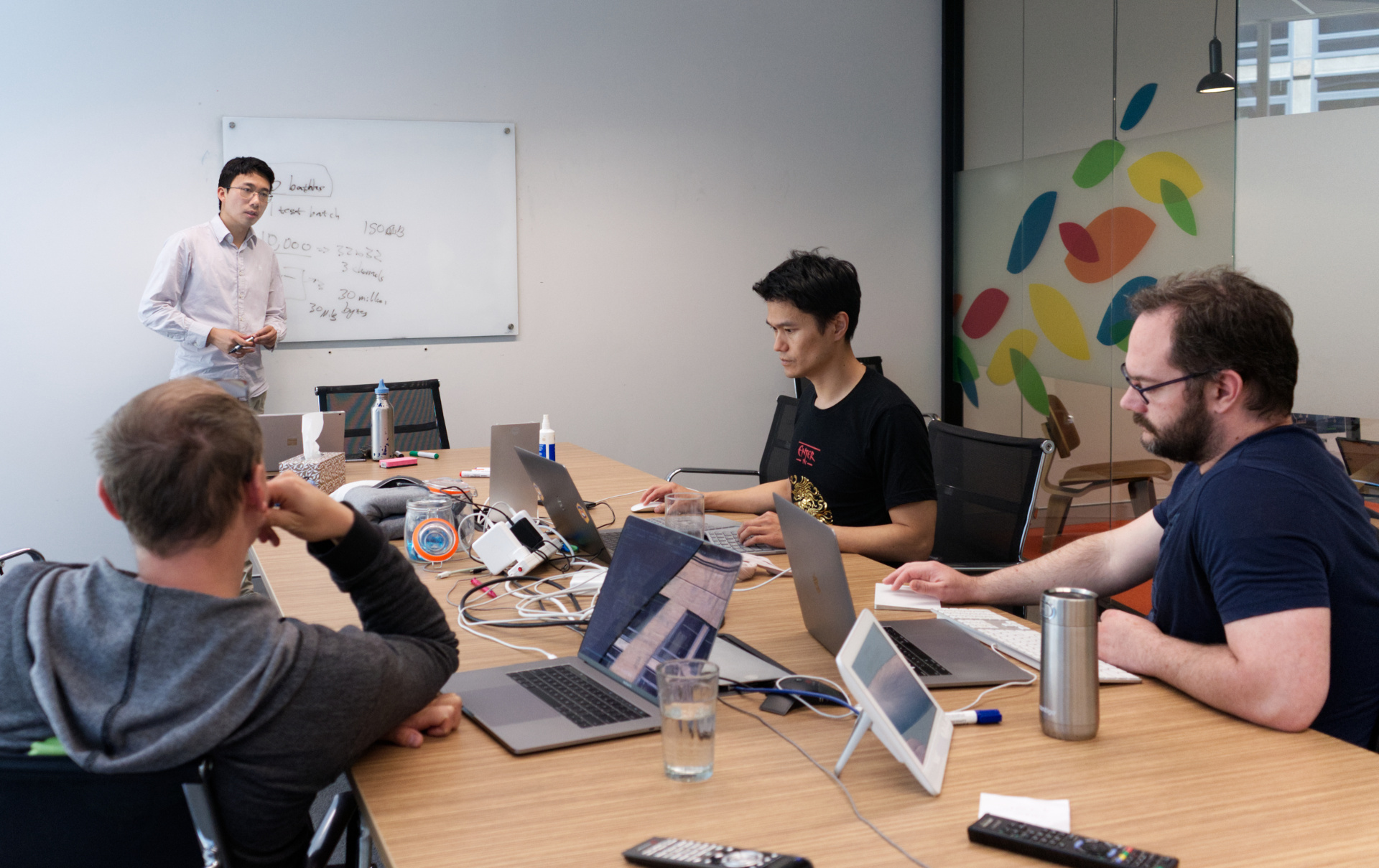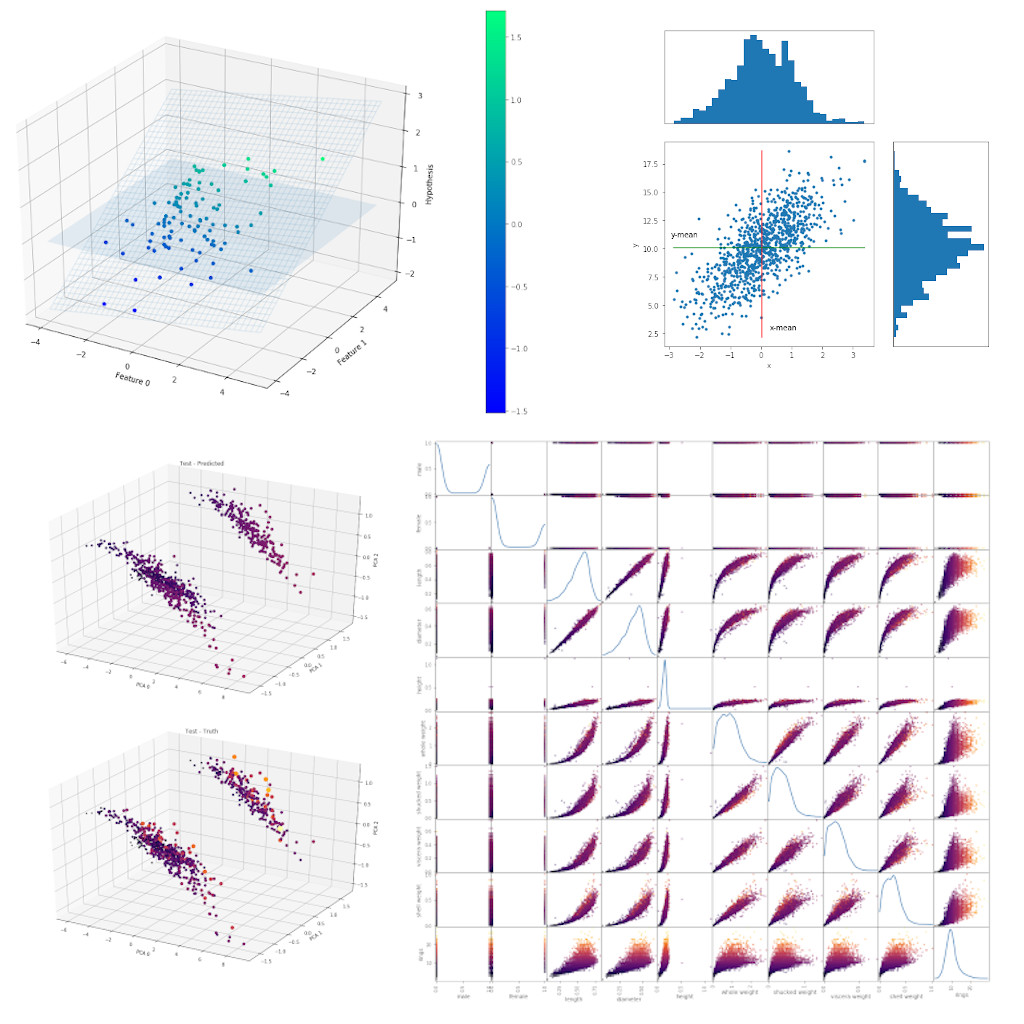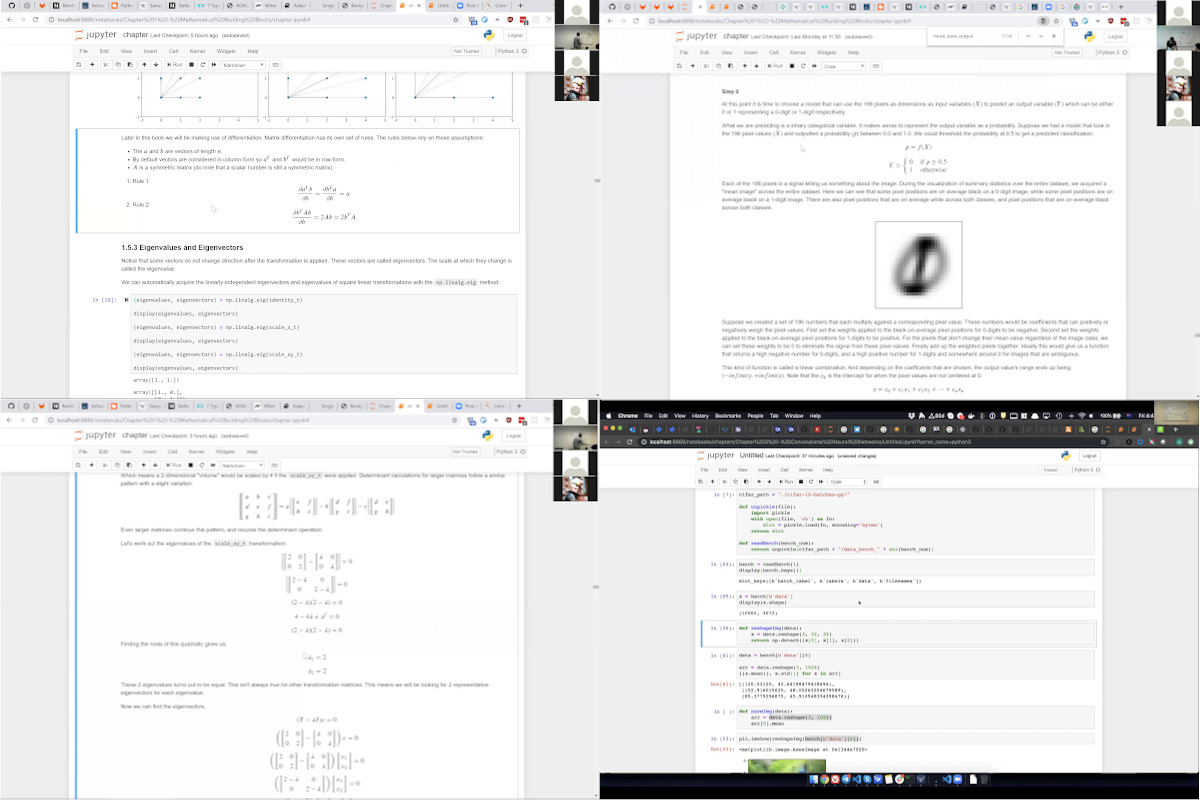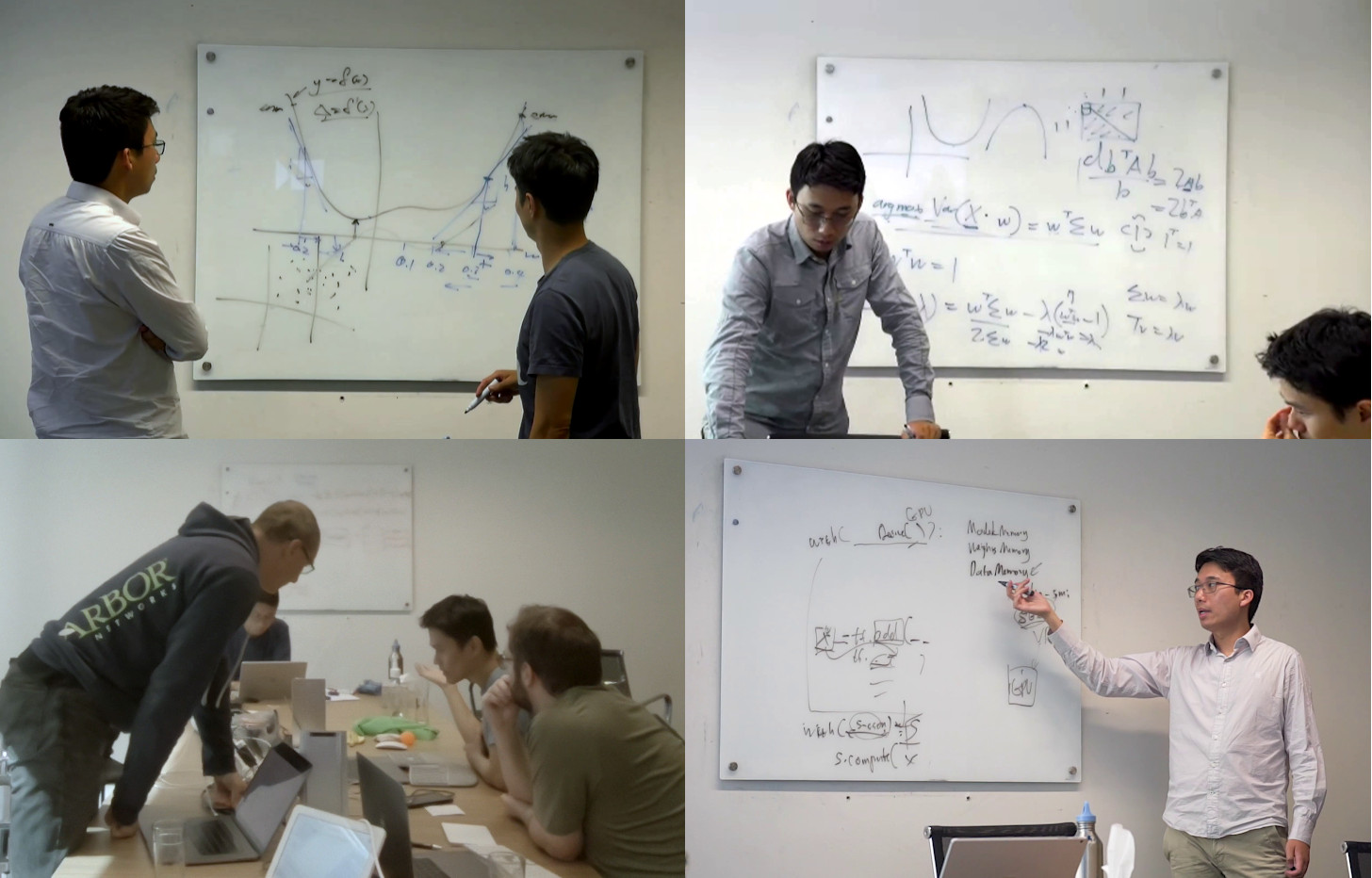Introduction to Deep Learning
Matrix AI is offering an on-site intensive 2.5 week (12 days) corporate training deep learning course catered to senior and principal software engineers of technology companies. The course will train them skills necessary for the practical use of machine-learning theory and deep learning techniques for solving real-world business problems. Engineers will also learn how to communicate statistical insights intuitively to business stakeholders.

What is Deep Learning
Artificial Intelligence (AI) is the application of learning, reasoning, problem solving, sensing, and creativity to computing machines. A subfield of AI is machine learning that focuses on developing statistical models that computers can execute to learn against large amounts of observational data. This allows the computer to make predictions or decisions without explicit instructions from the programmer. A subfield of machine learning is deep learning, which focuses on the usage of deep neural networks as the primary statistical model for regression and classification.
The field of deep learning was developed from a large corpus of statistics, machine learning theory and the development of artificial neural networks. Statistical techniques are roughly separated into 2 forms:
- Explaining the past
- Predicting the future
Deep learning has become incredibly successful in predicting the future in tasks such as image classification, object detection, natural language translation, game decision analysis and more.

Course Details
- Data Exploration
- Data Normalization
- Data Visualization
- Tabular Data Processing
- Array Data Processing
- Train/Test/Validation Splitting
- Differentiation and Partial Derivatives
- Vector Calculus
- Matrix Calculus
- Linear Regression
- Logistic Regression
- Model Evaluation
- Structure of Neural Networks
- Artificial Neurons
- Gradient Descent (Batch, Mini-Batch, Stochastic)
- Optimization Functions
- Back Propagation
- Multi Layer Neural Networks
- Activation Functions (Step, Linear, Sigmoid, Tanh, ReLU)
- Precision and Recall Curves and F1 score
- Confusion Matrices
- Deep Neural Networks
- Custom Neural Network Layers
- Custom Loss Functions
- Custom Metrics
- Data Augmentation
- Data Extraction and Transformation
- Softmax Activation
- Deep Convolutional Neural Networks from Alexnet to Resnet
- Batch Normalization
- Transfer Learning

Our chapters involves practical exercises with these datasets:
- Wine Quality Regression/Classification
- MNIST (Hand Drawn Digits) Binary Classification
- Abalone Age Regression
- CIFAR10 Multi-Class Image Classification
- COCO Multi-Class Image Classification
Students will be able to develop their models and compete on classification accuracy and regression scores.
Prerequisites
Course will be delivered with the Python 3 programming language in a Jupyter notebook environment with the utilization of these libraries:
- Numpy
- Pandas
- Matplotlib
- Scipy
- Scikit-Learn
- Scikit-Image
- Keras
- Tensorflow
- Tensorboard
We expect students to be able to understand the Python 3 programming language, and experience working on Unix-like computer systems.
Students require basic understanding of algebra and differentiation.
Students need to have a laptop or computing system available that is setup with a Python 3 development environment and internet connection. We provide the Git repository of the course material and nix-shell environment to speed up environment setup.
Course Information
Delivery
Course can be delivered on-site at the client's office in Sydney, Australia.
Alternatively the course can be delivered remotely using Zoom.
Other arrangements are possible, please contact us.
Schedule
The course is expected to take 12 half-days. Each half-day consists of 4 hrs of instruction and practice.
This translates to 2.5 calendar weeks: Mon-Fri, Mon-Fri then Mon-Tues.
Other arrangements are possible, please contact us.
Pricing
Pricing is calculated on a per-student basis. We have bulk discounts available.
Instructor
Course instructor is Roger Qiu, CEO and Founder of Matrix AI. He is a Principal Machine Learning Engineer consultant who has led million dollar big-data machine learning projects. Prior to Matrix AI, he had previously founded a web application development bootcamp called Polycademy and was the lead instructor. He is experienced in teaching and communicating complex ideas to software engineers. He has also presented at conferences and meetups such as YOW Data and Sydney Papers Club.
Other team members of Matrix AI may provide assistance.
History
The deep learning course was first piloted at NetScout (NASDAQ: NTCT) training their senior and principal software engineers on machine learning. Read about our experience

Testimonials
Roger's course was a great way to get up to speed on machine learning. The mathematical concepts introduced really made the subject matter stick. Now, we are capable of dissecting ML-based research papers, understanding what the innovations are, and applying them to problems we want to solve.
-- David Turnbull - Principal Software Engineer at NetScout